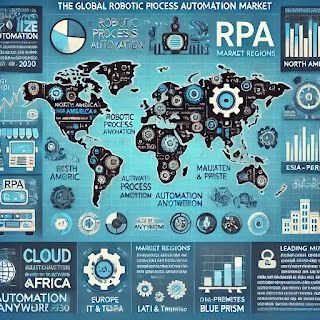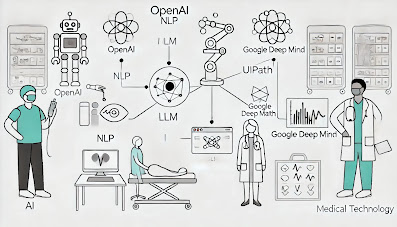Ginkgo Bioworks has established numerous partnerships across various industries, leveraging its synthetic biology platform. Here are some notable companies currently partnered with or using Ginkgo’s technology:
1. Bayer:
- Partnership Scope: Ginkgo Bioworks and Bayer formed a joint venture named Joyn Bio in 2017. Joyn Bio focuses on engineering microbial solutions to improve crop yields and reduce the environmental impact of agriculture. This partnership aims to develop sustainable agricultural products using Ginkgo's platform.
2. Roche:
- Partnership Scope: Roche and Ginkgo Bioworks announced a collaboration to develop new therapeutics. Roche is utilizing Ginkgo’s platform for its drug discovery and development processes, focusing on enhancing their capabilities in synthetic biology.
3. Moderna:
- Partnership Scope: Moderna and Ginkgo Bioworks have collaborated to optimize the production of mRNA for vaccines and therapeutics. Ginkgo’s platform is used to improve the efficiency and scalability of Moderna’s mRNA manufacturing processes.
4. Cronos Group:
- Partnership Scope: Cronos Group, a cannabis company, partnered with Ginkgo Bioworks to produce cultured cannabinoids. The collaboration aims to use Ginkgo’s microbial platform to develop and commercialize rare cannabinoids at scale, which can be more efficient and cost-effective than traditional cultivation.
5. Synlogic:
- Partnership Scope: Synlogic, a clinical-stage biopharmaceutical company, utilizes Ginkgo’s platform for the development of synthetic biotics. These are engineered probiotics designed to treat metabolic and inflammatory diseases.
6. Sumitomo Chemical:
- Partnership Scope: Sumitomo Chemical partnered with Ginkgo to create bio-based manufacturing processes for specialty chemicals. This collaboration focuses on using Ginkgo's platform to develop sustainable and environmentally friendly chemical production methods.
7. Biogen:
- Partnership Scope: Biogen collaborated with Ginkgo Bioworks to discover novel drug targets and develop new therapeutics for neurological diseases. This partnership leverages Ginkgo’s synthetic biology capabilities to enhance Biogen’s R&D efforts.
8. Aldevron:
- Partnership Scope: Aldevron, a leading provider of plasmid DNA, proteins, and mRNA, partnered with Ginkgo to improve the production efficiency and quality of its products. Ginkgo’s platform is used to optimize the biological processes involved in manufacturing these bioproducts.
Strategic Collaborations and Industry Impact:
These partnerships highlight Ginkgo Bioworks' strategic role in advancing biotechnology across various sectors. By leveraging Ginkgo’s platform, partner companies aim to innovate and enhance their product offerings, achieve sustainability goals, and improve efficiency in production processes.
Conclusion:
Ginkgo Bioworks' collaborations with major companies across diverse industries underscore its technological relevance and potential for continued growth. These partnerships not only validate Ginkgo’s platform but also open avenues for further innovation and market expansion.
Given the nature of their existing partnerships and the strategic value Ginkgo Bioworks could offer, the following companies might be the most interested in
acquiring Ginkgo Bioworks:
1. Bayer:
- Existing Partnership: Bayer is already deeply involved with Ginkgo through the Joyn Bio joint venture, focusing on sustainable agriculture solutions.
- Strategic Fit: Acquiring Ginkgo would allow Bayer to fully integrate Ginkgo’s synthetic biology capabilities into its crop science division, accelerating innovation in agricultural products and sustainable practices.
- Value Addition: Ginkgo’s platform could significantly enhance Bayer’s R&D capabilities, providing a competitive edge in the agricultural biotechnology market.
2. Moderna:
- Existing Partnership: Moderna uses Ginkgo’s platform to optimize mRNA production processes.
- Strategic Fit: Acquiring Ginkgo would enable Moderna to internalize these capabilities, potentially reducing costs and accelerating the development and production of mRNA-based vaccines and therapeutics.
- Value Addition: Ginkgo’s synthetic biology expertise could enhance Moderna’s overall biotechnology capabilities, supporting their long-term growth and innovation strategy in mRNA technology.
3. Cronos Group:
- Existing Partnership: Cronos Group partners with Ginkgo to produce rare cannabinoids through microbial fermentation.
- Strategic Fit: Acquiring Ginkgo would allow Cronos to fully control the production process of these high-value compounds, improving efficiency and reducing production costs.
- Value Addition: Ginkgo’s platform could help Cronos innovate and expand its product offerings in the cannabis market, positioning them as a leader in bio-based cannabinoid production.
4. Biogen:
- Existing Partnership: Biogen collaborates with Ginkgo for drug discovery and development in the field of neurological diseases.
- Strategic Fit: Acquiring Ginkgo would enable Biogen to fully integrate synthetic biology into its drug discovery pipeline, enhancing its R&D capabilities and accelerating the development of new therapeutics.
- Value Addition: Ginkgo’s technology could significantly boost Biogen’s innovation in developing treatments for neurological diseases, providing a strategic advantage in the biopharmaceutical market.
Rationale for Acquisition Interest:
Bayer:
- Deep Integration Potential: Bayer’s existing collaboration with Ginkgo in agricultural biotechnology and their mutual focus on sustainable solutions make Bayer a strong candidate for acquisition. Full integration would streamline operations and enhance their R&D efforts.
- Strategic Synergy: Bayer would benefit from Ginkgo’s advanced technology to develop more efficient and environmentally friendly agricultural products, aligning with their sustainability goals.
Moderna:
- Cost and Efficiency Gains: Moderna could achieve significant cost savings and efficiency improvements in mRNA production by internalizing Ginkgo’s capabilities.
- Strategic Innovation: Ginkgo’s synthetic biology platform could drive further innovation in Moderna’s pipeline, expanding their leadership in mRNA technology.
Cronos Group:
- Control Over Production: Full control over the microbial production process for cannabinoids would provide Cronos with a competitive edge in the cannabis market.
- Product Expansion: Ginkgo’s technology could enable Cronos to develop new and unique cannabinoid products, enhancing their market position.
Biogen:
- Enhanced R&D Capabilities: Integrating Ginkgo’s synthetic biology expertise would strengthen Biogen’s drug discovery and development efforts, particularly in neurological diseases.
- Accelerated Therapeutic Development: Ginkgo’s platform could accelerate Biogen’s development of new therapeutics, improving their competitive position in the biopharmaceutical industry.
Conclusion:
While each of these companies could benefit from acquiring Ginkgo Bioworks, Bayer and Moderna stand out as the most likely candidates due to the depth of their existing partnerships, strategic fit, and the potential value addition from integrating Ginkgo’s technology.
Bayer’s focus on sustainable agriculture and Moderna’s need for advanced mRNA production capabilities make them particularly strong contenders.
Related Articles:












